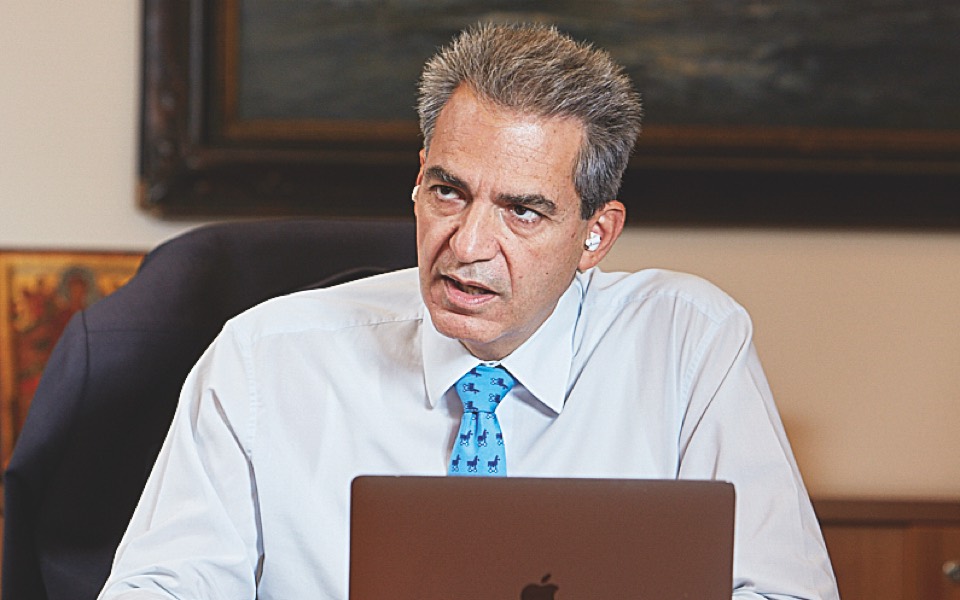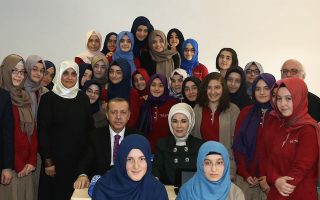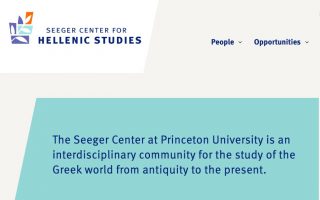Wooing Greece’s scientists back to universities
Deputy minister for higher education outlines government’s priorities for reversing brain drain, combating nepotism

Wooing back young scientists who went abroad “is one of the Education Ministry’s key objectives,” Angelos Syrigos, the deputy minister for higher education, tells Kathimerini, presenting plans to create “flexible teaching structures.”
Introducing the institution of visiting professor will act “as a bridge back,” he says, and will work in combination with “transparency and meritocracy in the election of academics.”
On the matter of campus security, Syrigos admits that there have been delays in the introduction of a special police force for universities but clarifies that this was not a result of “government choices.”
The election of academics is often defined by family connections, political affiliations and professional contacts – in short, by an absence of meritocracy. What is the Education Ministry doing to address this problem?
What you describe happens often, but it is not the rule. What is more common is preferentialism, that is candidates being favored not for their academic qualifications but because they are staunchly supported by serving professors. Family nepotism is seen in specific faculties. Reforming the electoral bodies, ensuring the selection of impartial electors from other universities via electronic lot, and instituting restrictions for candidates who have done their PhDs with professors who are on the electoral body are but some of the measures we are examining. Another important element is preventing positions being advertised in a way that is tailored to specific candidates by having a system of checks.
How can we win back the scientists who immigrated abroad because of the economic crisis? How can we accomplish a “brain gain”?
Getting young scientists who went abroad back is one of the Education Ministry’s key objectives. But we have to bear in mind that it’s unlikely successful scientists will want to give up sure jobs abroad to take a leap into the Greek unknown. This is why we will be creating flexible teaching structures at universities in the form of visiting professors. They will be able to teach in Greece without having to give up their positions abroad. The institution of visiting professor will act as a bridge back. It will work in combination with transparency and meritocracy in the election of academics, as mentioned earlier.
Does the way universities are administered need to change and, if so, how? Many argue that reintroducing university councils is a mistake given that the institution hasn’t functioned properly since 2011.
Bringing the councils back was in New Democracy’s pre-election program. Mrs [Education Minister Niki] Kerameus has already demonstrated that she keeps the government’s pre-election commitments. The councils, therefore, will be reintroduced. The need for a strong institutional counterbalance to the office of the rector is obvious. The challenge is for the council and the rector to be able to work together in a creative and complementary fashion. Universities must not become an arena of conflict over the role of the council again.
How will council members be selected and what jurisdictions will they have?
The way councils functioned in the past was based on a mixed structure, with some members coming from inside the university and others from outside it. Something similar will apply now. Council members from inside the university will be elected by the full-time professors. They, in turn, will elect the external members following a public invitation. The matter of jurisdictions is crucial. The councils will not have a say in universities’ day-to-day operations. You cannot expect members, especially those coming from outside, to give up what they’re doing so they can deal with mundane matters. The role of the councils will be executive.
Why shouldn’t the rector be elected by the council, as is the case in other countries? We have seen exchanges between candidates and academics on the electoral body taking place via such elections.
The body responsible for electing the rector and the council is one and the same. It would not make sense for this body to have ethically negligible criteria when it comes to voting for the rector and lofty ethical standards when it comes to the councils. What we need is institutional checks and balances against the abuse of power, both on the side of the rector and on the side of the council.
With regard to campus security, the impression is that the issue of a university police force has been put on the back burner. Is that the case?
There have been delays, it’s true. But this is not the result of government choices. The selection process has been completed for staffing the University Protection Teams, as the police force that will be responsible for campus security is called. There are certain appeals pending at the Council of State that are holding up the relevant presidential decree. What is important in my opinion is that since the law was amended in August 2019, the police have been able to enter university grounds when this has been necessary. I would attribute the much-improved picture of campus security over the past year to this. Just take a look at the Athens University of Economics and Business. Gone are the hundreds of peddlers selling their wares inside the university’s forecourt and the anarchist groups protecting them. We are seeing the same at all of our universities. But society has also changed radically. For example, not a single complaint decrying a purported violation of university asylum was issued when a team of police and city planning officials entered the National Technical University of Athens recently to demolish a wall being built by an anarchist group. Of course, there’s still a lot of work that needs to be done to fully safeguard academic freedoms. This is a matter that is an absolute priority to me, because I have been a victim of campus lawlessness.





